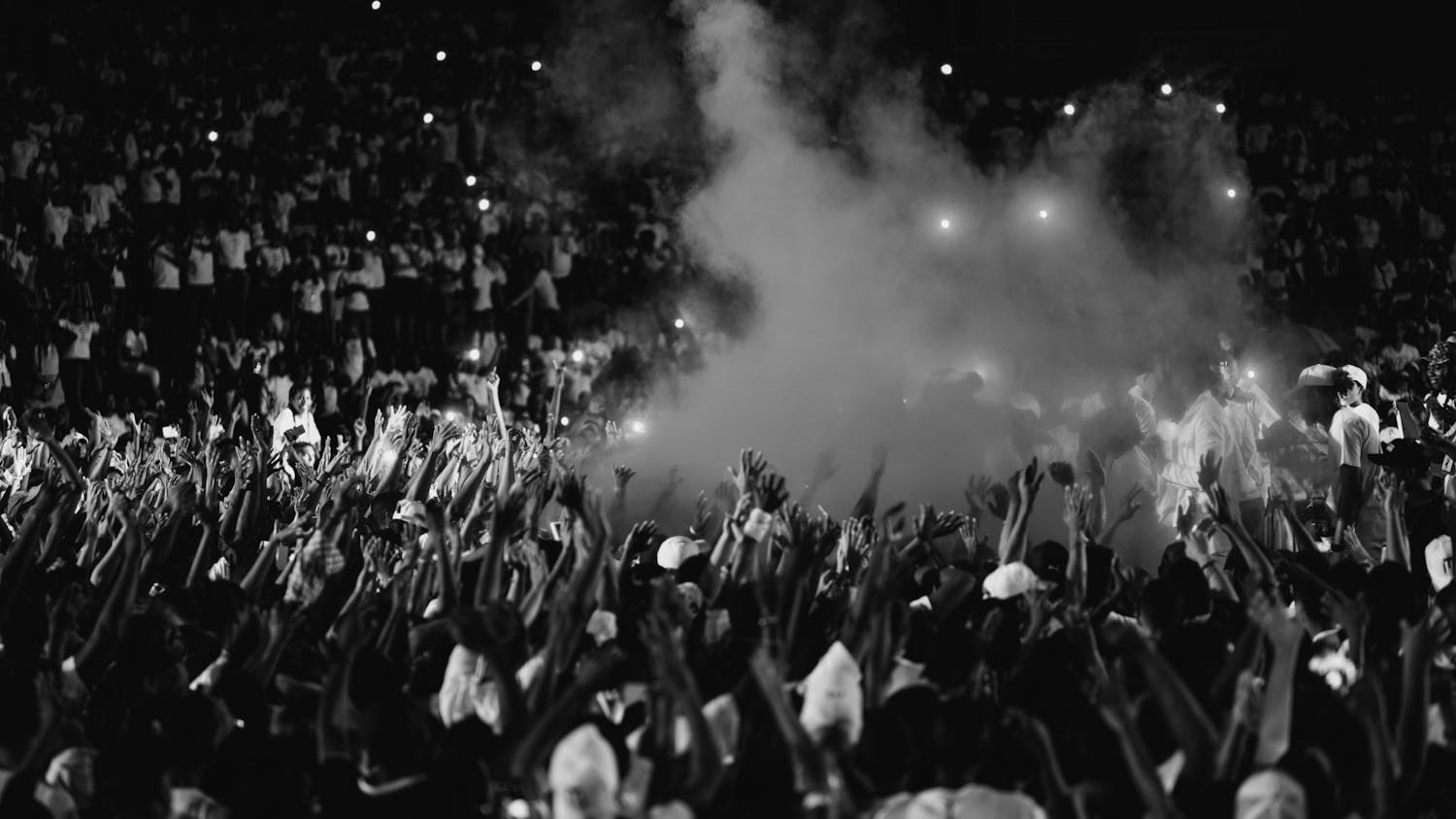For more than a week a group of demonstrators has been occupying the areas around Wall Street in New York, bearing signs with slogans such as “They only call it class war when we fight back,” and “Just because you can’t see us, doesn’t mean this isn’t happening.”
The second sign refers to the media silence surrounding the protests. They’re camping in the parks in the area at night. The current arrest total is generally agreed on to be around 80 people, some of whom were caught on camera being Maced, corralled and shoved to the ground by the NYPD.
The city of New York revived a law, circa 1845, against wearing masks in public, and has charged numerous protestors with violating that law and with disorderly conduct. Police demand that protesters remove the tarps they’re sleeping under, and the protesters claim that the police are ‘buzzing’ the camp with their sirens at odd hours of the night, trying to intimidate them into leaving.
Even in New York, the New York Times has only run a few articles about the people occupying the financial district. The majority of the information that can be found on the subject is from social media, the online Huffington Post and in non-US newspapers such as The Guardian. The same slow coverage on national networks is common of other protest events. The Wisconsin protests were in their third or fourth day when any sort of national media showed up to cover them, after the protestors, like the protestors in Egypt and Syria, resorted to outlets where they could get instant coverage: Facebook, Twitter and Reddit. Up until recently, Yahoo refused to send any emails that linked back to the protesters’ website: occupywallstreet.org
Yahoo has since issued an apology.
The use of social media to put pressure on larger media networks is itself a telling sign: it indicates a lack of faith and a decision to use popularity to force media outlets to recognize individuals because individuals fear being invisible to power.
If recent history is to be believed, social networks will be the tools for any kind of revolution, if interactions on them can be organized and focused.
The curious silence is not characteristic of all protests; the Tea Party events of the last few years, though attendance has sharply dwindled as it did at the DC Rally this March, have received lavish coverage. Estimates vary, but the Washington Post gives the number at several hundred, 50 of which were reporters and media representatives.
The protesters in NY represent themselves as being in the hundreds, or perhaps thousands. They post copious pictures on social networks, updates and manifestos. Why, in these numbers, with this kind of documentation and in one of the most affluent places in the world, is there so little media coverage?
I can think of several reasons. Generally speaking, there appears to be a certain national squeamishness with reporting these kinds of events on US soil. The newspaper industry and US government have a long-running, uneasy relationship. There have been times in US history where newspapers have been told not to print information for fear of disturbing the public. The death toll in Vietnam, for instance, was not reported until later in the conflict for that reason.
Perhaps this is information that news corporations, like the businesses they are, have decided is irrelevant or uninteresting to the area they serve. Many of the quotes from self-identified Americans on the Guardian’s articles and on the Huffington Post’s articles blame the protestors for refusing to settle down and get real jobs, or accuse them of being just idealistic college students, wasting their parents’ tuition money and unable to affect any real change.
That last comment appears often and in many forms: the idea is that the world will not change, that the reality of inequity in wealth distribution, of continued job loss and deepening recession could not possibly be changed.
The idea that finance is a juggernaut, and that one gets by the best one can, by any means one can, is a popular response to the various competing ideologies of change. The individual withdraws, because what can he or she do about it by him- or herself?
Get content from The Daily Lobo delivered to your inbox
The Tea Party appears to believe Obama created and continues the recession himself, and want him to resign or be forced out of office.
The protesters on Wall Street, if their signs are any indication, appear to believe that deregulation and a lack of oversight is the cause. Everyone seems to agree things can’t go on, but the fight appears to be missing a popular catalyst, something to shock people out of their malaise.
And what will that catalyst be?
In the New York Times, one of the articles ends with the patrons in a Greek Revival building laughing at and raising drinks to the protesters, who chant back “Pay your share.”
I don’t think it’s much of a stretch to compare that scene and the national mood, if ideologues on all sides are to be believed, to the metaphorical powder keg.
Despite the mockery of commenters on the Huffington Post and Guardian, history demonstrates with regularity that people who feel as if they have no recourse, nothing in which to have faith, tend to make their own. The United States in particular loves the idea that might makes right, an idea that in enshrined in our history along with the primacy of property rights and the need for revolution.
Several of the commenters sneered at the stupid hippies, stupid peace lovers and tree-huggers, who think that their presence means anything before the might of the military, in the face of the New York City police force. They gloat that the uppity hippies are getting their comeuppance, that they’ll be taught to behave by New York’s best. They gloat that idealism will be, should be, punished.
I worry for those protesters. I worry for us.





